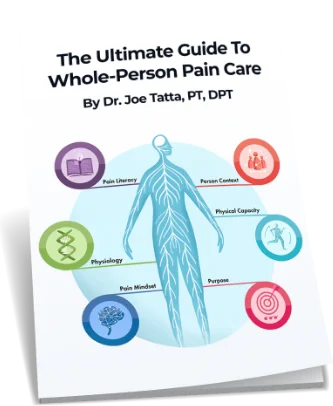MOTIVATIONAL INTERVIEWING AND PAIN NEUROSCIENCE EDUCATION: HOW THEY DIFFER AND HOW THEY CAN COMPLEMENT ONE ANOTHER
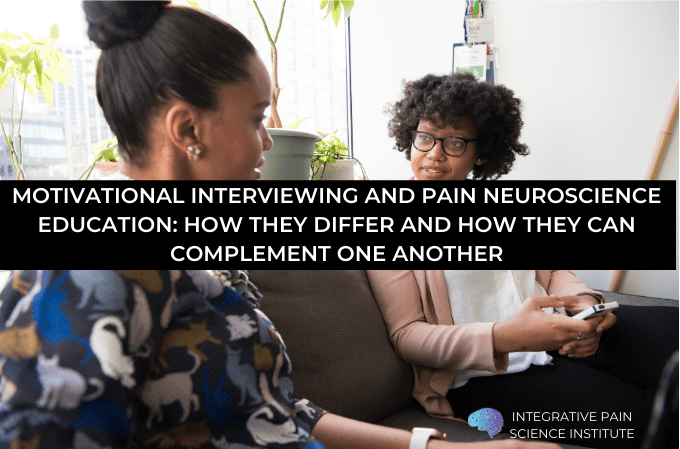
Motivational Interviewing and Pain Neuroscience Education are two approaches that have been shown to be useful when treating patients with chronic pain (1,2). While research supports both treatment strategies individually, there is currently no research exploring the potential benefits of integrating both motivational interviewing and pain neuroscience education into the management and treatment of chronic […]
How to Bill for Psychologically Informed Physical Therapy (PIPT)
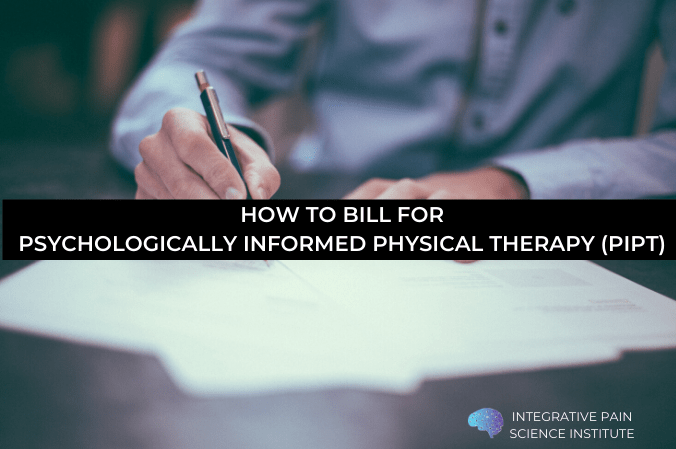
How many times have you seen the words “not medically necessary” on a denial letter for a patients bill? How many times have you provided quality, evidence-based, one-one-one patient pain care only to receive a letter from the insurance company that the claim was DENIED! When a claim is denied a practitioner’s first instinct is […]
What You Need to Know About Health Literacy and Chronic Pain Outcomes
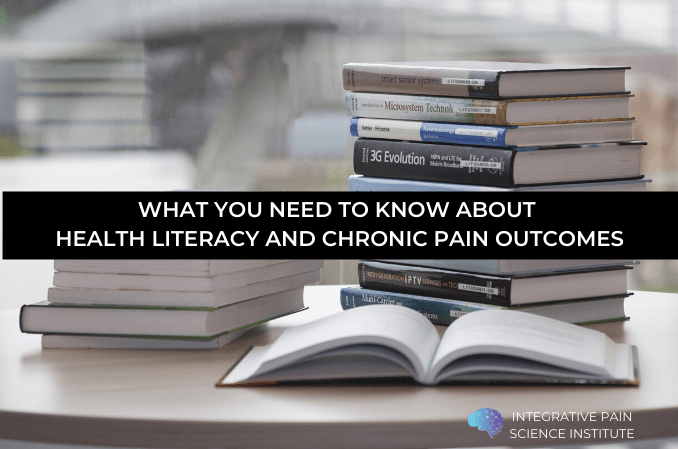
Research has investigated the associations between low health literacy and poorer outcomes in individuals with chronic conditions such as cardiovascular disease, COPD, and diabetes (1). However, an area that remains under-explored is the possible relationship between health literacy and health outcomes in patients with chronic pain (2). Health literacy in patients with chronic pain has […]
COGNITIVE BEHAVIORAL THERAPY OR PAIN EDUCATION: WHICH WORKS BETTER FOR PEOPLE LIVING WITH CHRONIC PAIN AND LOW HEALTH LITERACY?
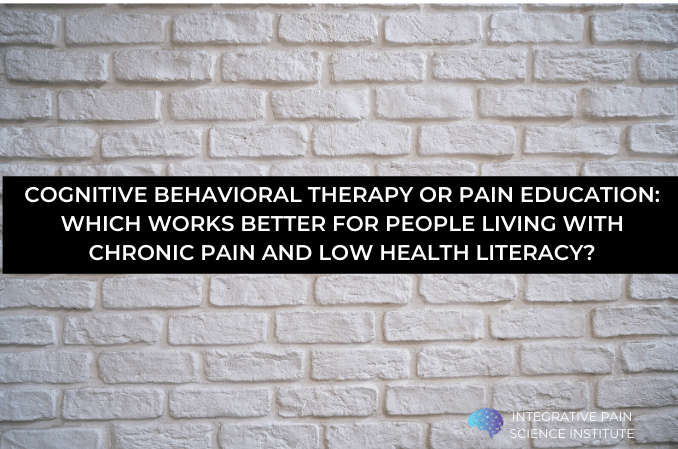
Low health literacy has been found to be associated with higher levels of pain intensity (1) as well as decreased health-related knowledge and overall poorer health status (2). Utilization of the biopsychosocial model is the recommended approach for treatment of chronic pain (3). This includes some form of patient education, which can vary widely based […]
5 Things To Know About Health Literacy and Chronic Pain
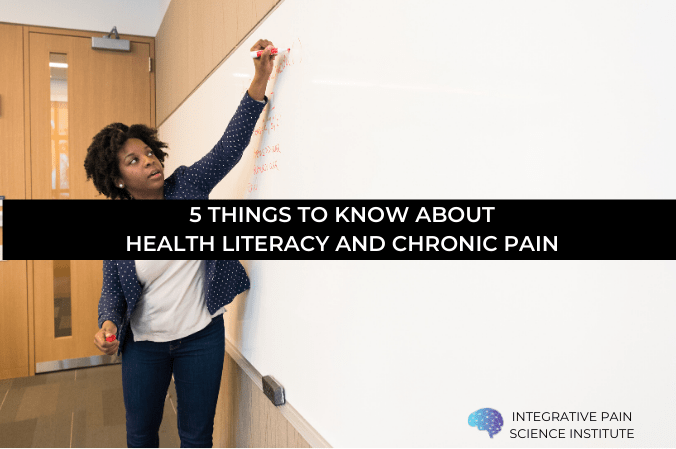
Chronic pain is a common reason for patients to seek medical treatment from health professionals such as physical therapists. In fact, twenty percent of the United States adult population experiences chronic pain according to 2016 data (1). Pain is multifaceted, and the pain experience is unique to each individual, making it impossible to establish a […]
Physical Therapists’ Key to Benefiting Mental Health Treatments
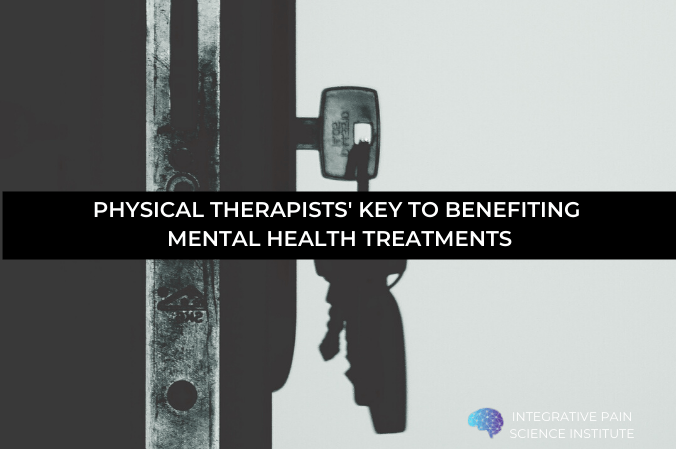
Chronic pain sufferers who struggle to find relief often develop psychological challenges that serve to only accentuate their pain – issues such as anxiety, depression and a reluctance to move and exercise. This isn’t news to most private practice physical therapists who treat patients with chronic pain. Psychological interventions, many agree, should be included as […]
